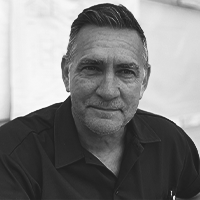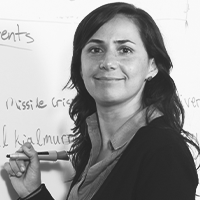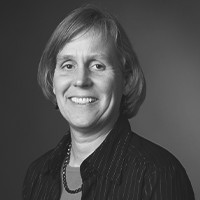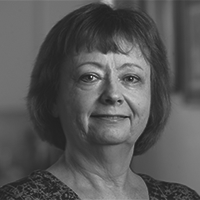David McMahon is a resident of Norristown, PA, and a co-founder of NOPE – Neighbors Opposing Privatization Efforts. After successfully stopping the purchase of the municipal sewer system by Aqua Pennsylvania, NOPE teamed up with residents in other nearby towns to share lessons from the Norristown campaign. Currently, NOPE is building a coalition with other organizations in southeastern PA to create a broader statewide pushback to enact legislation that would give ratepayers meaningful participation in protecting their public utilities.
Event Overview
RESOURCES / NEXT STEPS
Water Pricing and Affordability in the US: Public vs Private Ownership
Water shutoff moratoria lowered COVID-19 infection and death across US States
Which States and Cities Protect Residents from Water Disconnection in the COVID-19 Pandemic
The Relationship Between Water Shutoffs and COVID Infections and Deaths
Op-Ed: What’s fair about this method of determining ‘fair-market-value’ of public utilities?
In the case of the Bound Brook sewer sale, it's seller who should 'beware
Special Report: Water System resiliency in the wake of COVID-19
Report on Governance from the National Association of Clean Water Agencies
What You'll Learn
- How uneven access to water varies across communities and regions, as well as how policymaking and planning can exacerbate or diminish such inequalities
- The impact of public versus private water resource management
- Possible solutions for sustainable water practices through the lens of social justice advocacy
Speakers
Kofi Osei is a resident of Towamencin, PA, and a community organizer with NOPE – Neighbors Opposing Privatization Efforts. Using the examples from Norristown and Conshoke, Mr. Osei is currently working to stop the privatization of Towamencin’s municipal sewer system. The work includes rewriting Towamencin’s charter and pushing for legislation that would stop or even reverse privatization across the Commonwealth of Pennsylvania.
Marcela González Rivas’s central research interests revolve around sustainable water policy, equity, and water governance. More specifically, Dr. Rivas’s research examines how uneven access to water varies across communities and regions as well as how policymaking and planning can exacerbate or diminish such inequalities, with particular concentration on Mexico and Latin America more broadly. Recent research and teaching have focused on COVID-19 responses to water access protection in the U.S. as well as on Pittsburgh’s water challenges in aiming to achieve sustainability and the equity dynamics that are at play.
Margo Ewing Bane Woodacre, MSW, has worn many hats over her career: a former Delaware State Senator and New Castle County Prothonotary; a published author, communication advisor, and keynote speaker; and a college adjunct English instructor for over 30 years.
Since her move to Pennsylvania, Ms. Woodacre has taken an active role in opposing the Act 12 legislation regarding the privatization of Pennsylvania public utilities. She has played a significant role in opposing the attempted acquisition of Chester Water Authority (CWA) by Aqua/PA and, in 2021, initiated the forming of KWA – Keep Water Affordable.
Mary Grant is the campaign director of Public Water for All at Food and Water Watch. For the last five years, she has overseen campaigns to support universal access to safe water in the United States by promoting responsible and affordable public provision of water and sewer service. Prior to becoming campaign director, Ms. Grant spent seven years as a researcher for Food and Water Watch. A policy analyst on U.S. water utility privatization, her research has been featured in the New York Times, the Washington Post, the Guardian, CNN, and other national and local news outlets. Food and Water Watch is a national environmental organization that mobilizes regular people to build political power to move bold and uncompromised solutions to the most pressing food, water, and climate problems of our time.
Mildred E. Warner is a professor in the Department of City and Regional Planning at Cornell, where her work focuses primarily on local government service delivery, economic development, and age-friendly planning. Dr. Warner’s research explores the impact of privatization and devolution on local government and the role of human services as part of the social infrastructure for economic development. Her work addresses differential access to infrastructure across urban and rural communities and the challenges of finance and management.
Peggy Gallos is the executive director of the Association of Environmental Authorities, a 50-year-old organization that represents New Jersey local, regional, and county government agencies — mostly authorities — that provide water, sewer, and solid waste services to most of the state’s nearly 9 million people. Ms. Gallos joined AEA in 2011; prior to that she worked for the U.S. Department of Energy and the National Renewable Energy Lab, following five years as a speechwriter and water/ energy policy advisor at the New Jersey Board of Public Utilities. She ran her own editorial services business for many years and worked as a journalist, covering issues that included politics, land use and development, environment, and education. Ms. Gallos earned a Bachelor’s degree in English from New York University and a Master’s degree in Public Administration from Rutgers University.
Xue Zhang is a research associate in the Department of City and Regional Planning and the Department of Global Development at Cornell University. She is interested in regional development, equity, community development policy, and public health. Dr. Zhang’s current research focuses on local government actions in building age-friendly communities. Her research links community health with planning, built environment, and services to explore community development strategies.

David McMahon is a resident of Norristown, PA, and a co-founder of NOPE – Neighbors Opposing Privatization Efforts. After successfully stopping the purchase of the municipal sewer system by Aqua Pennsylvania, NOPE teamed up with residents in other nearby towns to share lessons from the Norristown campaign. Currently, NOPE is building a coalition with other organizations in southeastern PA to create a broader statewide pushback to enact legislation that would give ratepayers meaningful participation in protecting their public utilities.

Kofi Osei is a resident of Towamencin, PA, and a community organizer with NOPE – Neighbors Opposing Privatization Efforts. Using the examples from Norristown and Conshoke, Mr. Osei is currently working to stop the privatization of Towamencin’s municipal sewer system. The work includes rewriting Towamencin’s charter and pushing for legislation that would stop or even reverse privatization across the Commonwealth of Pennsylvania.

Marcela González Rivas’s central research interests revolve around sustainable water policy, equity, and water governance. More specifically, Dr. Rivas’s research examines how uneven access to water varies across communities and regions as well as how policymaking and planning can exacerbate or diminish such inequalities, with particular concentration on Mexico and Latin America more broadly. Recent research and teaching have focused on COVID-19 responses to water access protection in the U.S. as well as on Pittsburgh’s water challenges in aiming to achieve sustainability and the equity dynamics that are at play.

Margo Ewing Bane Woodacre, MSW, has worn many hats over her career: a former Delaware State Senator and New Castle County Prothonotary; a published author, communication advisor, and keynote speaker; and a college adjunct English instructor for over 30 years.
Since her move to Pennsylvania, Ms. Woodacre has taken an active role in opposing the Act 12 legislation regarding the privatization of Pennsylvania public utilities. She has played a significant role in opposing the attempted acquisition of Chester Water Authority (CWA) by Aqua/PA and, in 2021, initiated the forming of KWA – Keep Water Affordable.

Mary Grant is the campaign director of Public Water for All at Food and Water Watch. For the last five years, she has overseen campaigns to support universal access to safe water in the United States by promoting responsible and affordable public provision of water and sewer service. Prior to becoming campaign director, Ms. Grant spent seven years as a researcher for Food and Water Watch. A policy analyst on U.S. water utility privatization, her research has been featured in the New York Times, the Washington Post, the Guardian, CNN, and other national and local news outlets. Food and Water Watch is a national environmental organization that mobilizes regular people to build political power to move bold and uncompromised solutions to the most pressing food, water, and climate problems of our time.

Mildred E. Warner is a professor in the Department of City and Regional Planning at Cornell, where her work focuses primarily on local government service delivery, economic development, and age-friendly planning. Dr. Warner’s research explores the impact of privatization and devolution on local government and the role of human services as part of the social infrastructure for economic development. Her work addresses differential access to infrastructure across urban and rural communities and the challenges of finance and management.

Peggy Gallos is the executive director of the Association of Environmental Authorities, a 50-year-old organization that represents New Jersey local, regional, and county government agencies — mostly authorities — that provide water, sewer, and solid waste services to most of the state’s nearly 9 million people. Ms. Gallos joined AEA in 2011; prior to that she worked for the U.S. Department of Energy and the National Renewable Energy Lab, following five years as a speechwriter and water/ energy policy advisor at the New Jersey Board of Public Utilities. She ran her own editorial services business for many years and worked as a journalist, covering issues that included politics, land use and development, environment, and education. Ms. Gallos earned a Bachelor’s degree in English from New York University and a Master’s degree in Public Administration from Rutgers University.

Xue Zhang is a research associate in the Department of City and Regional Planning and the Department of Global Development at Cornell University. She is interested in regional development, equity, community development policy, and public health. Dr. Zhang’s current research focuses on local government actions in building age-friendly communities. Her research links community health with planning, built environment, and services to explore community development strategies.
- View slide #1
- View slide #2
- View slide #3
- View slide #4
- View slide #5
- View slide #6
- View slide #7
- View slide #8
View Keynote by completing the form below.
You're Registered!
https://ecornell.cornell.edu/keynotes/view/K072722/
Add to Calendar 1:00 PM - 2:00 PM EDT
RESOURCES / NEXT STEPS
Water Pricing and Affordability in the US: Public vs Private Ownership
Water shutoff moratoria lowered COVID-19 infection and death across US States
Which States and Cities Protect Residents from Water Disconnection in the COVID-19 Pandemic
The Relationship Between Water Shutoffs and COVID Infections and Deaths
Op-Ed: What’s fair about this method of determining ‘fair-market-value’ of public utilities?
In the case of the Bound Brook sewer sale, it's seller who should 'beware
Special Report: Water System resiliency in the wake of COVID-19
Report on Governance from the National Association of Clean Water Agencieshttps://ecornell.cornell.edu/keynotes/view/K072722/primaryAmerica/New_YorkeCornell
